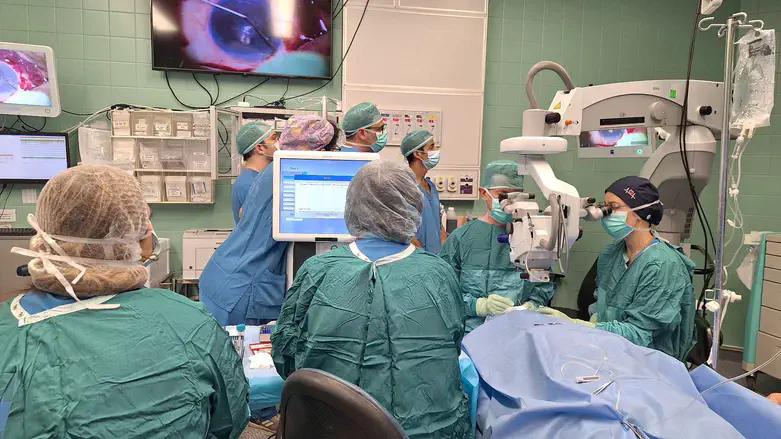Doctors at Kaplan Medical Center in Israel have successfully performed the first transplant of the EndoArt artificial cornea, marking a significant advancement in the treatment of severe eye conditions. This innovative procedure offers renewed hope for patients who have faced challenges with traditional corneal transplants, particularly those who have experienced multiple failures due to donor tissue rejection.
The EndoArt implant, developed by Israeli medical device company EyeYon Medical, is designed to replace the function of the cornea’s endothelium without requiring biological tissue from donors. The endothelium is crucial as it regulates the cornea’s hydration, maintaining its transparency. Damage to this layer can lead to serious vision impairment, as it cannot regenerate.
This pioneering surgery was performed on a patient suffering from advanced corneal edema, who had previously undergone three unsuccessful donor cornea transplants. In cases where traditional surgical options are no longer viable due to the high risk of rejection, the artificial implant emerges as a revolutionary alternative.
Transforming Treatment Options
The introduction of the EndoArt implant addresses a critical global shortage in corneal availability. Currently, over 13 million visually impaired individuals worldwide are in need of sight-saving corneal surgery. Professor Arie Marcovich, Director of the Ophthalmology Department at Kaplan Medical Center, emphasized the importance of this innovation, particularly in Israel, where patients often face lengthy waiting times for corneal transplants.
“The patient who underwent surgery today had already experienced three failed transplants from human donors, and it was not possible to perform another one,” Professor Marcovich stated. “EyeYon Medical’s new implant opens up opportunities for him—and many others—to regain their sight without depending on human corneal donations.”
Nahum Ferera, CEO of EyeYon Medical, expressed pride in the advancements made by the company. “We are committed to bringing groundbreaking innovation from Israeli science directly to the operating room. This is an exciting moment for our team—to see how Israeli technology truly changes lives,” he said.
A New Era in Ophthalmology
The successful execution of this procedure represents a significant milestone in ophthalmology, with the potential to transform treatment options for patients worldwide. With hundreds of successful surgeries having been performed globally using this technology, its return to Kaplan Medical Center signifies a trusted solution for those who have exhausted traditional avenues.
As the healthcare community continues to grapple with the growing demand for corneal transplants, the EndoArt implant offers a scalable and effective alternative, marking a hopeful chapter for patients in need of corneal restoration. The successful outcome of this transplant not only demonstrates the potential of synthetic medical devices but also highlights the ongoing commitment to innovation in the field of ophthalmology.







